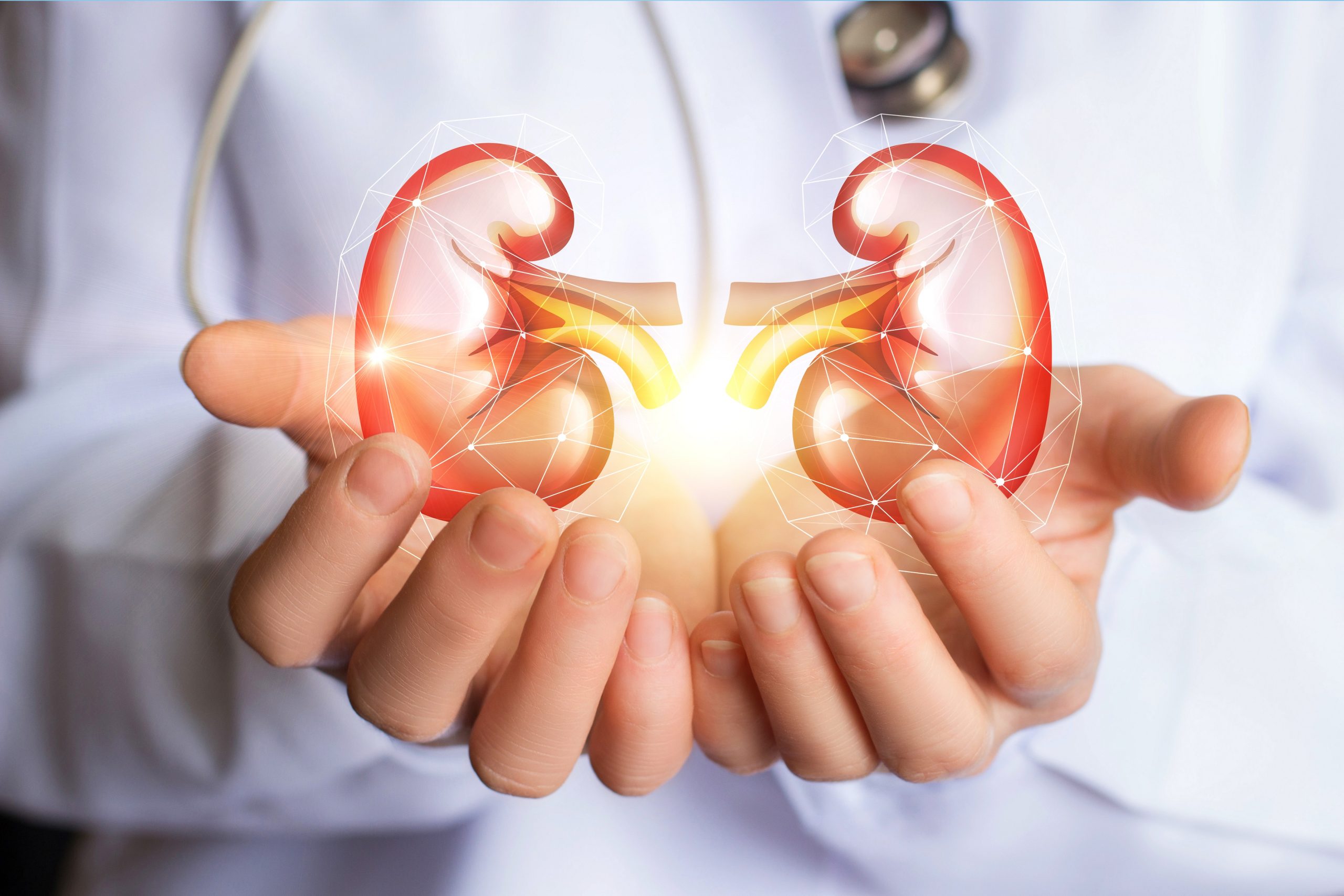One morning after your child suddenly wakes up, their eyes and face seem swollen. You think they might have overslept, but within a few days, it starts to continuously increase. You then think they might have an allergy, or a problem with their eyes. In the meantime, you also notice that they are urinating only 1-2 times day, and in very little quantity. Their legs and stomach also seem swollen.
Now you’re worried, and you rush to your child’s doctor. He quickly conducts some urine and bloods tests to reveal that your baby has a kidney disease called ‘Nephrotic Syndrome’. Your child’s treatment then begins – they are monitored, their daily urine levels checked, and fluid intake adjusted as per urine volume; and in the initial stage the mother is asked to admit their child to the hospital and kept informed about treatment.
The family is now in shock. Such a small child to be suffering from kidney disease! Will their kidneys fail and stop working? Are both kidneys affected? What food should they be given, what should they not be given, and various other questions were brought up by the parents.
So now we know why Nephrotic Syndrome happens, who is likely to get infected by it, what is the treatment, whether the kidney is damaged, what medicines are used and what are their side effects are.
Who suffers from nephrotic syndrome and why does it happen?
Let’s talk about Nephrotic Syndrome in our children. In most cases, it usually occurs in children from the age of 2 to 6/8 years. The rate of Nephrotic Syndrome is slightly higher in male children. No direct cause of the primary nephrotic syndrome is known, however, there are various theoretical explanations. For whatever reason, the kidney membrane cannot temporarily retain the body’s non-proteinaceous substances or albumin, and it is excreted in the urine, resulting in a lack of albumin in the blood vessels.
Albumin mainly helps to retain water in the human body. So, when it is deficient, water from the blood accumulates inside different parts of the body and water inflates the child’s eyes, mouth, stomach, and feet.
What kind of symptoms do the children show?
Swelling of various parts of the body such as the eyes, face, and feet; decreased urine output; abdominal pain, urinary tract infections and pneumonia may accompany this as the immune system is weak during this time.
How is this disease diagnosed?
Your child’s doctor will do more tests to check the amount of albumin in the urine and blood and to see if there are any other complications.
Treatment method:
Primary treatment starts with steroid drugs as well as the treatment of other complications or infections. Treatment is primarily long-term and will continue in two 6-week sessions for a total of 12 weeks.
Steroids or prednisolone are considered the lifelines of this disease. In most cases, the flow of protein in the urine stops within 14 days of consuming the drug. If the flow of protein does not stop within 30 days, it is called Acute Nephrotic Syndrome. In that case, other tests are needed, including a kidney biopsy, and other drugs are needed in addition to steroids.
Does nephrotic syndrome get better if treated at once?
Most (90%) cases of Nephrotic Syndrome get better with treatment, and the good news is that in most cases there is no damage to kidney functions. However, the downside is that the disease is likely to recur in 60-80% of cases.
Are there any side effects of the treatment?
Yes, there are. As the disease is treated with steroids, it has several side effects, such as swelling of the cheeks and abdomen which is not due to water, increased appetite, acidity, behavioural changes in the child and increased blood pressure in some cases.
How to take care of the child/What food to give the child:
•During this period, as the immune system is weakened due to both illness and medication, the child should be kept safe at home. Contact with patients who have illnesses, especially measles and chicken pox should be avoided, and these patients should be kept away from the child.
• A doctor must be consulted before taking the vaccine.
• In the case of food, eat more non-vegetarian foods, such as egg whites. Excess oily food including egg yolks should be avoided.
• Foods with excess salt and salt should not be eaten separately.
• When the child urinates less, the amount of water or liquid food should be reduced. When they urinate more, increase the amount again.
• You must learn how to do a Urine Albumin test at home, which can be determined by strip or burning it, and the child should be tested at least three days a week, even in healthy conditions, and especially when they are suffering from fever, cold or cough-related illness. If the albumin level is 2+ or more for three consecutive days, a doctor should be consulted.
• Since the fever, cold and cough of these children can sometimes reach a severe level, complications are reduced if proper treatment is taken without delay.
• It is also important for the children to take special vaccinations. These vaccinations should be taken in healthy conditions as per the doctor’s advice.
Expert Nephrology Consultants at Evercare Hospital
Evercare Hospital is one of the best private hospitals in the country that have advanced medical equipment and modern medical systems in their Nephrology department. They have expert Nephrology Consultant, junior doctors, nurses, and technicians who are highly experienced in-patient care and are treating hundreds of patients with kidney disease.
Your child’s good health is all we desire


